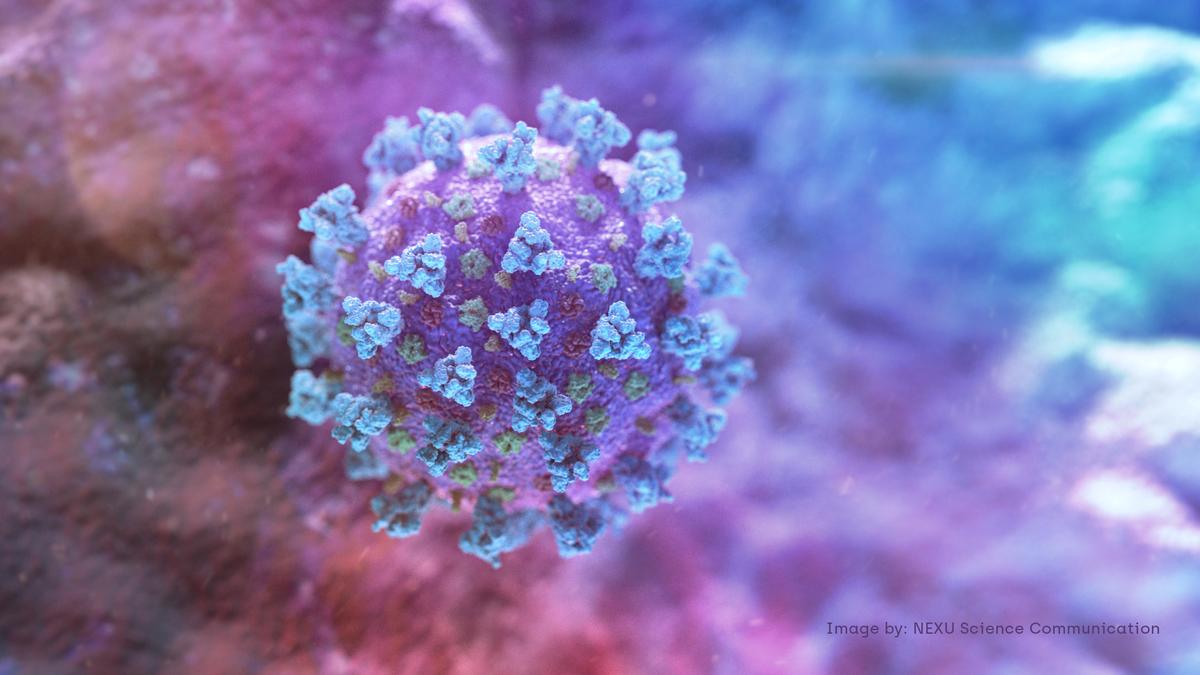(Reuters) – With much of the world living in lockdown, the spread of the new coronavirus, SARS-CoV-2, that was first detected in China late last year is beginning to slow in some places. As of Friday, 2.18 million people had been infected and 147,000 killed by COVID-19, the disease caused by the virus.
FILE PHOTO: A computer image created by Nexu Science Communication together with Trinity College in Dublin, shows a model structurally representative of a betacoronavirus which is the type of virus linked to COVID-19, better known as the coronavirus linked to the Wuhan outbreak, shared with Reuters on February 18, 2020. NEXU Science Communication/via REUTERS
While a safe, effective vaccine is still more than a year away, researchers are rushing to repurpose existing drugs and non-drug therapies as well as testing promising experimental drugs that were already in clinical trials.
Even moderately effective therapies or combinations could dramatically reduce the crushing demand on hospitals and intensive care units, changing the nature of the risk the new pathogen represents to populations and healthcare systems.
New drugs, together with new diagnostics, antibody tests, patient- and contact-tracing technologies, disease surveillance and other early-warning tools, mean the anticipated next “wave” of the global pandemic does not have to be nearly as bad as the first.
More than 70 vaccine candidates are also in development around the world, with at least five in preliminary testing in people. Below are some of the drugs, vaccines and other therapies in development.
(For a related graphic, open this in a web browser: reut.rs/3bhMUaE)
*DRUGS
REMDESIVIR – GILEAD SCIENCES
Antiviral drug, originally developed to combat RNA viruses including respiratory syncytial virus. At least 13 trials underway in China, Europe and the United States with preliminary results from two Chinese trials expected as soon as April 2020. A February assessment by the WHO flagged this candidate as the most promising for battling COVID-19.
CAVEATS: Initial data are expected to come from studies of patients with relatively severe COVID-19. Because antivirals work best when patients are healthier, those results may show limited effectiveness.
STATUS: Repurposed Experimental
EARLY RESULTS: 0-3 months
FURTHER READING:
Report says COVID-19 patients respond to Gilead’s remdesivir, shares surge
Link: here
Gilead starts two late-stage studies to test drug for coronavirus
Link: here
Investors await data on coronavirus drugs as market rally builds
Link: here
Gilead asks FDA to revoke orphan drug status for potential coronavirus drug
Link: here
Two thirds of COVID-19 patients improve after Gilead drug: NEJM
Link: here
Clinical Trials
Link: here
New England Journal of Medicine, April 2020
Link: here
HYDROXYCHLOROQUINE / CHLOROQUINE
Malaria drug also believed to have antiviral activity. Blocked SARS-CoV-2 entry into cells in an in-vitro experiment. In one small French study, some COVID-19 patients showed improvements but there was no way to know if the drug was the reason. Results published in April from another study in France and one in China found no benefit in patients treated with the drug. Dozens more clinical studies are underway around the world.
STATUS: Repurposed
EARLY RESULTS: 0-3 months
FURTHER READING:
Special Report: Doctors embrace drug touted by Trump for COVID-19, without hard evidence it works
Link: here
Coronavirus drug hopefuls are cheap to make but may be in short supply
Link: here
Clinical Trials
Link: here
Journal of Zhejiang Univ (Med Sci), March 2020
Link: here
Médecine et Maladies Infectieuses, March 2020
Link: here
Nature, February 2020
Link: here
ACTEMRA (TOCILIZUMAB) – ROCHE
Monoclonal antibody approved for rheumatoid arthritis and also for treating the “cytokine storm” immune overresponse in cancer patients. Fifteen registered trials in China, Europe and the United States are testing it on COVID-19 patients, alone or in comparison to other therapies. One French trial is looking at 28-day effects on COVID-19 in patients with advanced or metastatic cancer.
STATUS: Repurposed
EARLY RESULTS: 0-3 months
FURTHER READING:
Coronavirus drug hopefuls are cheap to make but may be in short supply
Link: here
Clinical Trials
Link: here
KEVZARA (SARILUMAB) – SANOFI, REGENERON PHARMACEUTICALS
Monoclonal antibody approved for inflammatory arthritis, and in trials targeting the “cytokine storm” immune response in severely ill COVID-19 patients. Regeneron’s chief scientific officer has said initial data on effectiveness could come by late April.
STATUS: Repurposed
EARLY RESULTS: 0-3 months
FURTHER READING:
Data on arthritis drug to treat coronavirus could come within weeks: Regeneron executive
Link: here
Exclusive: Sanofi can produce millions of doses of potential coronavirus drug – CEO
Link: here
Sanofi, Regeneron expand testing of potential coronavirus treatment
Link: here
Clinical Trials
Link: here
JAKAVI (RUXOLITINIB) – NOVARTIS, INCYTE
Developed to treat inflammatory and autoimmune diseases, and in late-stage development as a cream for atopic dermatitis. One trial each in Canada and Mexico will test the drug in COVID-19 patients with severe respiratory symptoms associated with the “cytokine storm” immune response, with preliminary results expected by June 2020. In the United States, Novartis established a managed access program for use in severe/very severe COVID-19 illness on April 7.
STATUS: Repurposed
EARLY RESULTS: 0-3 months
FURTHER READING:
Novartis, Incyte join repurposing wave to give Jakavi a trial run in COVID-19
Link: here
Clinical Trials
Link: here
KALETRA (LOPINAVIR/RITONAVIR) – ABBVIE
Antiviral combination used to treat and prevent HIV infections. More than twenty trials around the world are testing the drug as a COVID-19 treatment or post-exposure prophylaxis for people with high-risk close contact with a confirmed case. Initial results expected as soon as May 2020.
CAVEATS: One randomized controlled trial in China published results in March showing no differences in viral load or 28-day mortality among 199 patients. Median time to clinical improvement was one day shorter in patients taking the drug. However the same investigators, doctors at Jinyintan Hospital in Wuhan, said in April that they believe Kaletra, as well as a second drug, bismuth potassium citrate, helped some of the COVID-19 patients they treated.
STATUS: Repurpo

